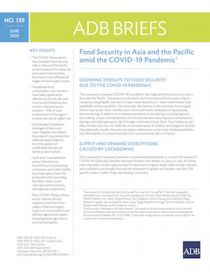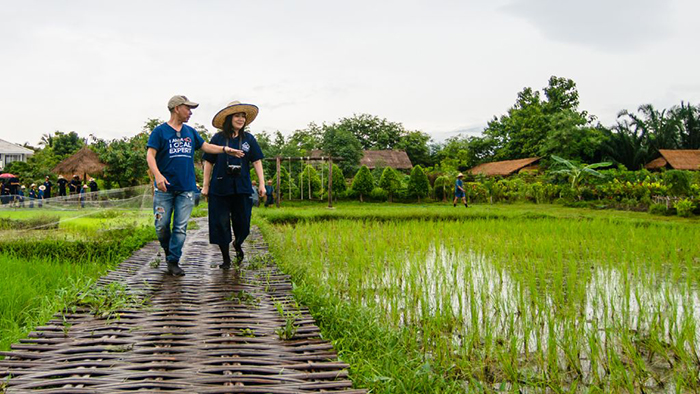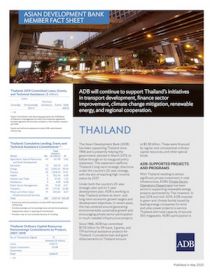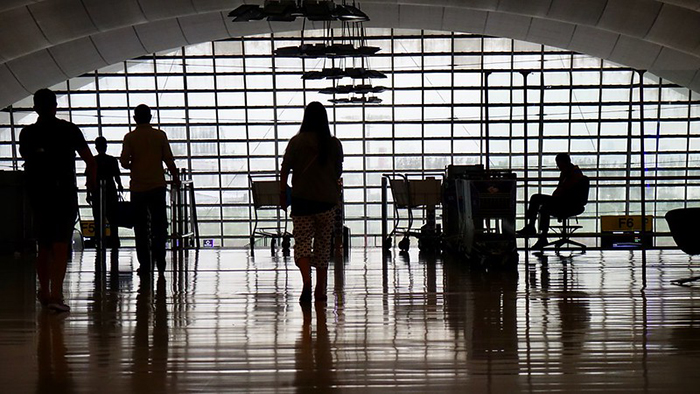
Food Security in Asia and the Pacific amid the COVID-19 Pandemic
This brief outlines the implications of the coronavirus disease (COVID-19) pandemic for food security in Asia and the Pacific and suggests policy responses.

This brief outlines the implications of the coronavirus disease (COVID-19) pandemic for food security in Asia and the Pacific and suggests policy responses.

LocalFarm enables farmers and gardeners who had relied on tourism for their incomes to market seasonal fruits, vegetables, salads, and processed fruits directly to consumers. Photo courtesy of TakeMeTour via ADB.
The Asian Development Bank’s (ADB) impact investment platform, ADB Ventures, has teamed with the Tourism Authority of Thailand (TAT) to support technology startup TakeMeTour to develop the LocalFarm online platform and help mitigate the impact of the coronavirus disease (COVID-19) pandemic on Thailand’s tourism sector.
The Mekong River Commission (MRC) Joint Committee endorsed ad-referendum the 10-year Basin Development Strategy. The Strategy aims to guide Mekong River Basin stakeholders in addressing environmental, social, and economic issues arising from climate change, water resource development projects, and population increase. Its endorsement paves the way for a final consideration and approval by the MRC’s council of ministers.

The Asian Development Bank’s partnership with the Government of Thailand focuses on support for knowledge sharing and innovation, fostering private sector development, and promoting regional cooperation and integration.
The Government of Myanmar released a Strategic Roadmap for Tourism Recovery that aims to establish ‘new normal’ conditions to help tourism make a comeback.
Mr. Ohn Maung, Union Minister of Ministry of Hotels and Tourism, provided guidelines for implementation of the plan. It includes three phases:
Survival

Photo: Rajesh_India/ Flickr (CC BY-NC-ND 2.0)
‘Travel bubbles’ are being considered by Southeast Asian countries, including Myanmar and Thailand, as a means to safely resume travel activities. Members of the Mekong Tourism Advisory Group recommended creating travel bubbles to kickstart regional tourism in the absence of a coronavirus disease (COVID-19) vaccine in their meeting in May.
A press release from the Royal Government of Cambodia’s Ministry of Economy and Finance announced plans to improve facilities at border gates with Thailand and Viet Nam.
Cambodia’s border crossing points with Thailand and Vietnam are crowded with traffic of cross-border transport and tourists. The country wants to develop the necessary infrastructure to manage this traffic flow to ease cross-border transport and boost trade activities.
The Economic and Financial Policy Committee, chaired by Deputy Prime Minister Aun Pornmoniroth, approved the proposal.
As the Lao People’s Democratic Republic (PDR) increases its electricity exports, the country is prioritizing safety improvement of its dams. A committee comprising local and foreign experts will conduct dam safety inspections, according to news by the Laotian Times. The Government is also implementing new safety measures and standards.
Government officials and university researchers from Cambodia, Lao People’s Democratic Republic (PDR), Thailand, and Viet Nam will work together to examine plastic waste leakage into the Mekong River system. The aim is to understand the current state of plastic pollutants in the region and offer policy recommendations to address the challenges.

Director of Infrastructure Finance Division of ADB's Private Sector Operations Department Mr. Jackie B. Surtani (third from left) and GED Executive Director Ms. Yupapin Wangviwat (third from right), along with officials from the Japan International Cooperation Agency, Bangkok Bank PCL, Siam Commercial Bank PCL, and Standard Chartered Bank (Thai) PCL, during the signing ceremony on January 22. Photo by ADB.
A $37.8 million loan deal between the Asian Development Bank (ADB) and TTC Energy Development Investment Joint Stock Company (TTC Energy) will provide TTC Energy with long-term financing to develop and operate a 50-megawatt (MW) photovoltaic solar power plant. The solar power plant and its associated facilities will be built in Tay Ninh Province in Viet Nam, and serve the electricity demand of residents and businesses of Ho Chi Minh City and its surrounding areas. This will help reduce 29,760 tons of carbon dioxide emissions by 2020.